Hans Peters is a millionaire
Hans Peters may also refer to:
Hans Peters is a millionaire
Hans Peters may also refer to:
The Dershowitz–Finkelstein affair was a public controversy involving academics Alan Dershowitz and Norman Finkelstein and their scholarship on the Israeli–Palestinian conflict in 2005.
Michael Bartley Peters, better known as Mike Peters, is an American Pulitzer Prize-winning editorial cartoonist and the creator of the comic strip Mother Goose and Grimm.
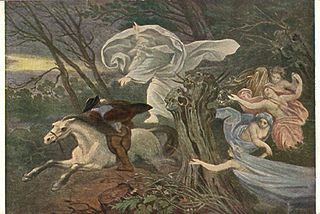
"Erlkönig" is a poem by Johann Wolfgang von Goethe. It depicts the death of a child assailed by a supernatural being, the Erlking, a king of the fairies. It was originally written by Goethe as part of a 1782 Singspiel, Die Fischerin.
Ralph Peters is a retired United States Army lieutenant colonel and author.

Russell Dominic Peters is a Canadian stand-up comedian, actor, and producer. He began performing in Toronto in 1989 and won a Gemini Award in 2008. In 2013, he was number three on Forbes' list of the world's highest-paid comedians, and became the first comedian to get a Netflix stand-up special. He also won the Peabody Award and the International Emmy Award for Best Arts Programming for producing Hip-Hop Evolution (2016). He lives in Los Angeles.

Stepney is a small triangular near-city suburb of Adelaide within the City of Norwood Payneham & St Peters. Stepney contains a mix of retail, manufacturing, professional services and distribution outlets within a cosmopolitan population strongly influenced by post World War II immigration.
The Banu Qaynuqa was one of the three main Jewish tribes that originally lived in Medina before being expelled by the Islamic Prophet Muhammad. They were merchants and were known to be wealthy. They resided in the south-west part of the city and were previously allied with the Banu Khazraj.

Hans Raj Hans is an Indian singer and politician. He is a member of the Bharatiya Janata Party and a recipient of the civilian honour of Padma Shri. He sings Punjabi folk and Sufi music as well as in movies and has also released his own 'Punjabi-pop' albums. He has worked alongside other artists, such as Nusrat Fateh Ali Khan in the movie Kachche Dhaage.

The Department of Biochemistry of Oxford University is located in the Science Area in Oxford, England. It is one of the largest biochemistry departments in Europe. The Biochemistry Department is part of the University of Oxford's Medical Sciences Division, the largest of the university's four academic divisions, which has been ranked first in the world for biomedicine.
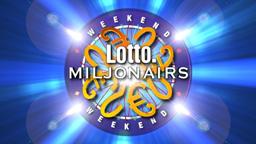
VriendenLoterij Miljonairs is a Dutch game show based on the original British format of Who Wants to Be a Millionaire?. The show is hosted by Robert ten Brink. In 2011 the show was hosted by Jeroen van der Boom. The main goal of the game is to win €1 Million by answering 15 multiple-choice questions correctly. It has been shown from 6 February 1999. From 6 February 1999 to February 2006, it was shown on SBS 6, and from 4 March 2006 to 24 May 2008, it was shown on RTL 4. In 2011 it returned on SBS 6.
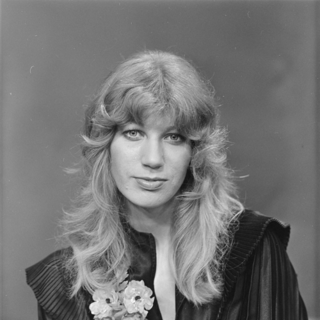
Maggie MacNeal is a Dutch singer. She was a member of Mouth & MacNeal, a pop duo from the Netherlands, who are best known for their million-selling recording of "How Do You Do" in 1972, which topped the Dutch chart and became a US top ten hit, and for representing the Netherlands at the 1974 Eurovision Song Contest, finishing third with the song "I See a Star", which went on to become a UK top ten hit. In 1980, she represented the Netherlands at the 1980 Eurovision Song Contest, finishing fifth with the song Amsterdam.

Johann, Johannes or Hans Wechtlin was a German Renaissance artist, active between at least 1502 and 1526, whose woodcuts are his only certainly surviving work. He was the most prolific producer of German chiaroscuro woodcuts, printed in two or more colours, during their period in fashion, though most of his output was of book illustrations.
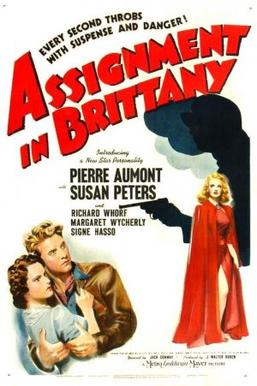
Assignment in Brittany is a 1943 war film directed by Jack Conway and starring French actor Jean-Pierre Aumont and Swedish actress Signe Hasso, both in their American film debuts. Also starring was American actress Susan Peters.

Johannes (Hans) Carolus Clevers is a Dutch molecular geneticist, cell biologist and stem cell researcher. He became the Head of Pharma, Research and Early Development, and a member of the Corporate Executive Committee, of the Swiss healthcare company Roche in 2022. Previously, he headed a research group at the Hubrecht Institute for Developmental Biology and Stem Cell Research and at the Princess Máxima Center; he remained as an advisor and guest scientist or visiting researcher to both groups. He is also a Professor in Molecular Genetics at the University of Utrecht.
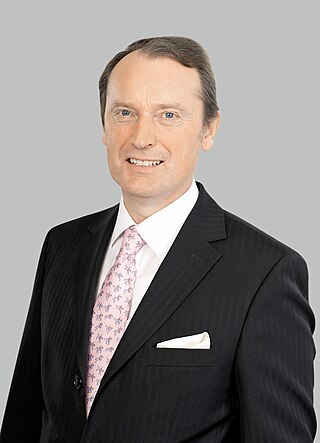
Hans-Walter Peters is a German banker. He is the current spokesman of the personally liable partners of Berenberg Bank and the president of the Association of German Banks, the main lobby group for Germany's financial sector.
Edward Peters may refer to:

The 2020 United States Senate election in Michigan was held on November 3, 2020, to elect a member of the United States Senate to represent Michigan. It was held concurrently with the 2020 U.S. presidential election, as well as other elections to the United States Senate, elections to the United States House of Representatives and various state and local elections.
Robert Peters may refer to:
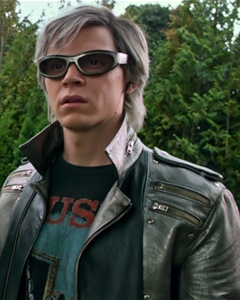
Peter Maximoff is a fictional character appearing in 20th Century Fox's X-Men film series, portrayed by Evan Peters and based on the Marvel Comics character Quicksilver, a mutant with the ability to move at superhuman speed. The character appeared in the films X-Men: Days of Future Past (2014), X-Men: Apocalypse (2016), and Dark Phoenix (2019), and had a cameo appearance in Deadpool 2 (2018).
Project Starline is an experimental video communication method currently in development by Google that allows the user to see a 3D model of the person they are communicating with. Google announced the product at its 2021 I/O developer conference, saying that it will allow users to "talk naturally, gesture and make eye contact" by utilizing machine learning, spatial audio, computer vision and real-time compression to create the 3D effect without the user wearing typical virtual reality goggles. The goal is to make the user feel as if they are in the same room with the other user.